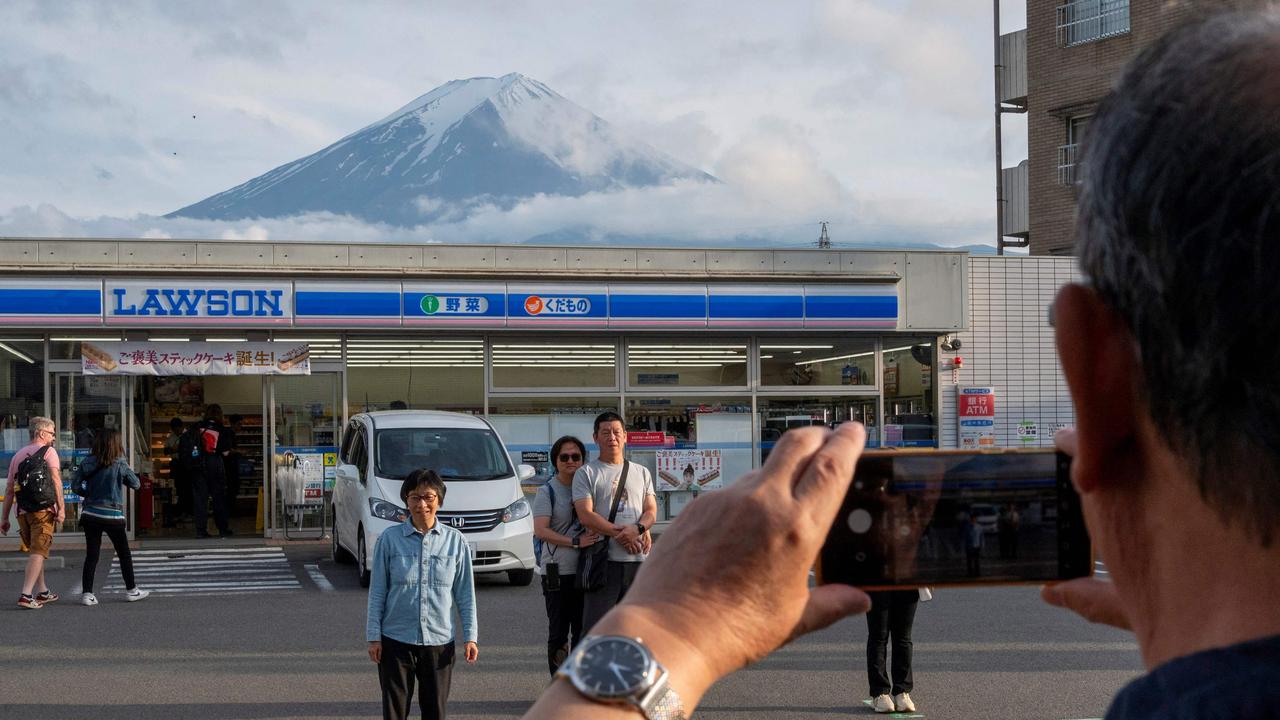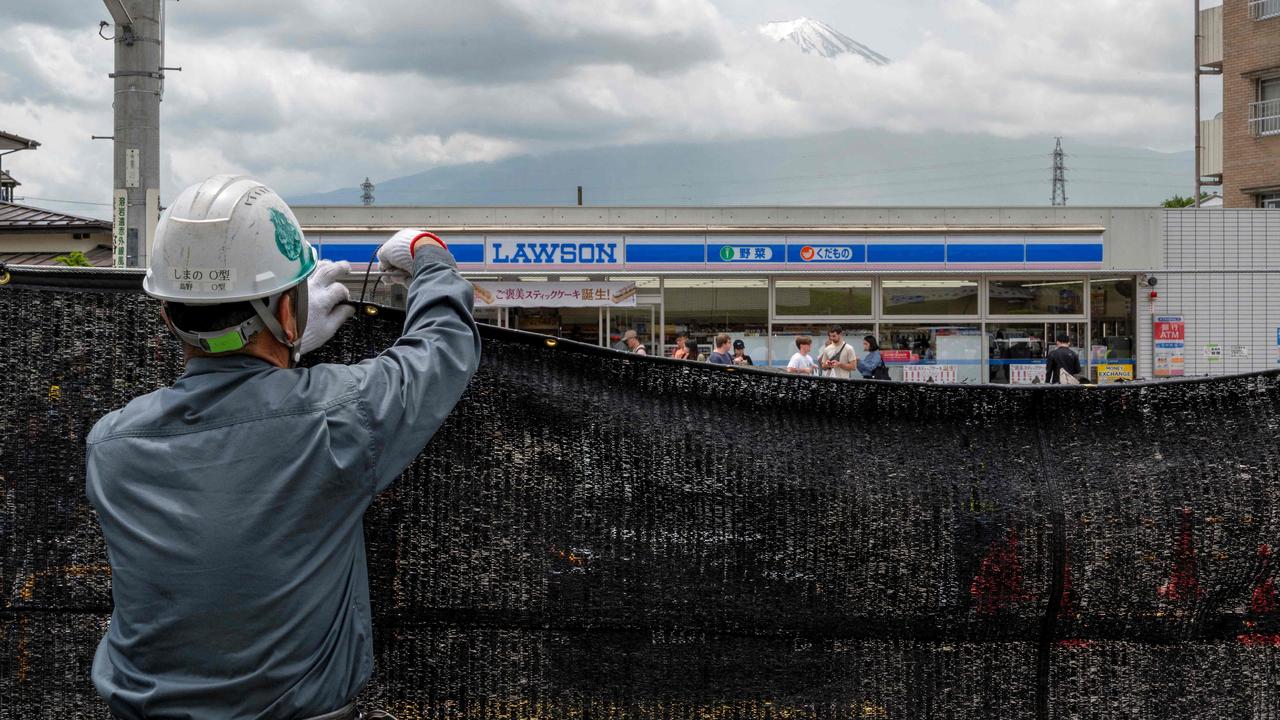Mt Fuji snowless for longer than ever before, with records dating back 130 years
Japan’s Mount Fuji is one of the most famous peaks in the world but scientists are concerned after it broke a 130 year record.
Japan’s iconic Mount Fuji has remained snowless for the longest period at least 130 years.
The volcano’s snow-cap begins forming on October 2 on average and last year snow was first detected there on October 5.
But because of warm weather, this year no snowfall has yet been observed on Japan’s highest mountain, said Yutaka Katsuta, a forecaster at Kofu Local Meteorological Office.
That marks the latest date since comparative data became available in 1894, he said, beating the previous record of October 26 – seen twice, in 1955 and then in 2016.

“Temperatures were high this summer, and these high temperatures continued into September, deterring cold air” which brings snow, Mr Katsuta told AFP.
He agreed that climate change may have a degree of impact on the delay in the snowcap’s formation.
Japan’s summer this year was the joint hottest on record – equalling the level seen in 2023 – as extreme heatwaves fuelled by climate change engulfed many parts of the globe.
Mount Fuji is covered in snow for most of the year, but during the July-September hiking season, more than 220,000 visitors trudge up its steep, rocky slopes.
Many climb Mount Fuji through the night to see the sunrise from the 3776m summit.

Too many tourists
Fewer climbers tackled Mount Fuji this year after Japanese authorities introduced measures to fight overtourism.
Tourists are now required to book a limited spot and pay a fee.
Climbers are charged 2000 yen ($20) each and only 4000 people can climb each day to ease congestion.

A popular spot to snap pictures of the sacred mountain was blocked off in May amid increasing tensions between locals and tourists – but it was removed after just a few months.
Mount Fuji can be seen behind a convenience store in the town of Fujikawaguchiko, leading to streams of foreign tourists stopping there to take pictures and share them on social media.
Frustrated locals complained of the visitors littering, trespassing and breaking traffic rules, so a black barrier measuring 2.5m by 20m was erected to block the sought-after Instagram shot.
By the following week it was reported that there were about ten holes in the black mesh barrier at eye level, with officials considering the need for stronger material.
However, officials quietly took down the barrier on August 15 because it had done its job, according to CNN.
“Since we installed the screen in May, there have been no more people staying long in the area. We do feel it has been effective,” a councillor told the outlet.

Extreme weather changing the way tourists travel
While extreme heat and over tourism is known to be influencing the way Aussies travel overseas for the northern summer, industry experts say it is happening in our own backyard, too.
“The extreme weather that we’re seeing is a persistent threat to the tourism and experiences industry,” Big Red Group chief executive David Anderson told news.com.au.
Brett Mitchell, Australian managing director at Intrepid Travel, agreed: “We’ve highlighted climate change as one of our most pressing risks as a business … We’re seeing it all over the world and also here in Australia.”
This year, Australia is in for an unusually hot and wet summer.
Sky News Weather meteorologist Rob Sharpe told news.com.au that nights are very likely to be within the top four warmest on record for Australia as a whole.
He said the Bureau’s current forecast for mean temperatures (days and nights) was close to 1.5C above the 1961-1990 baseline, “which would make it the fourth warmest summer on record”.
“However, some of the other global models are suggesting it won’t be quite as hot as that,” he added.
“Our forecast is that Australia as a whole should see a summer in the top ten hottest on record – primarily aided by the warm seas and the influence of climate change.”
Andrea Peace, BOM national community information manager, said a higher proportion of tropical cyclones this year are likely to be more severe.
Big Red Group and Intrepid Travel have both observed customers booking experiences and tours closer to the date because they want to watch the weather.
Mr Mitchell said being flexible and adaptable to severe weather was critical to the success of Intrepid Travel, which is a global tour operator based in Melbourne.
“Our product design changes significantly year-on-year and a lot of that is based on heat or constant flooding conditions,” he said, adding that in some cases, destinations have been removed from the schedule altogether.





